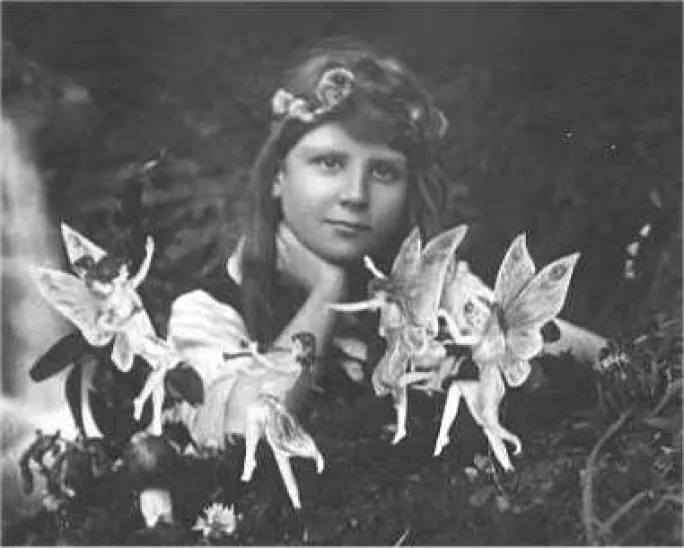‘Dawkins is right; there is a danger with make-believe when it used as evidence for pseudo-science’
James Williams, lecturer in education at the University of Sussex’s school of education and social work, writes:
The famous Cottingley fairies duped Sir Arthur Conan Doyle. Today anyone who touted such a belief would be widely scoffed at. There is no scientific evidence that fairies exist and no serious scientist would ever apply for research funding to show that they did.
Why was Conan-Doyle fooled? He was a well-respected writer, a qualified doctor so at heart a scientist. The photographs were taken by cousins Elsie and Frances Griffiths at the bottom of their garden in Cottingley, near Bradford.
Conan Doyle, who had been commissioned to write about fairies for a magazine, heard of the pictures and thought they would be the perfect way to back his story with evidence. But they were faked using cardboard cut-outs. In his bid to show that the paranormal and the supernatural was real, Conan-Doyle ignored his scientific training.
He wanted the fairies to be true, so to him they were. In another incident, that cost him a friendship, Conan-Doyle also insisted that world famous escapologist Houdini had supernatural powers, Houdini insisted he didn’t.
Can allowing children to believe in the tooth fairy or Father Christmas damage them? In essence, no. Children need elements of make believe, from invisible friends to creating magical houses and dens inhabited by elves and fairies in the garden.
As they grow up, reality takes over and the make believe - whilst never completely going away - is more properly turned to creative arts such as painting and writing make believe stories. Without adults with such skills our world would be a very dull place.
The popularity of fantasy, science-fiction and magical films and TV series, let alone adult and children’s literature based on make-believe and magic is an essential aspect of our lives. It is a release from the humdrum life - a place to go in your mind and be free.
But there is a danger with make-believe. It’s not the make-believe world itself, but how some use make believe as evidence for pseudo-scientific beliefs, such as creationism. Comic books, videos, even the children’s cartoon The Flintstones have been insidiously used in a form of intellectual abuse of children to try and justify the claims of fundamentalist Biblical literalists.
The mythical story of St George slaying the dragon has been used to support the unscientific idea of humans and dinosaurs co-existing. Even the dragon on the Welsh flag has been cited as “evidence” that in times gone by humans must have encountered dinosaurs. The organisation Answers in Genesis has even gone so far as to endorse The Flintstones as one of the more scientifically accurate cartoons.
Books, specifically aimed at children, that depict dinosaurs in the Garden of Eden alongside immaculately coiffured images of Adam and Eve and stating that this is not make-believe, but a depiction of a reality can be classed as nothing less than an intellectual abuse of children.
Make believe in itself poses no danger, the danger is when the make-believe is misused and abused to support what is pseudo-scientific. Children can distinguish reality from make-believe pretty well. Even my four-year-old grandson, Thomas, and his six-year-old sister, Isobel, have developed questioning minds that are at once enthralled by make-believe, yet sceptical should an adult try to transfer the make-believe into some form of reality.
We don’t need to worry about children believing in fairies, it’s the adults who cynically use such beliefs we need to worry about.
Follow James on Twitter @edujdw
Keep reading for just £1 per month
You've reached your limit of free articles this month. Subscribe for £1 per month for three months and get:
- Unlimited access to all Tes magazine content
- Exclusive subscriber-only stories
- Award-winning email newsletters




